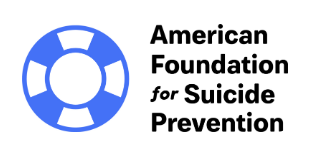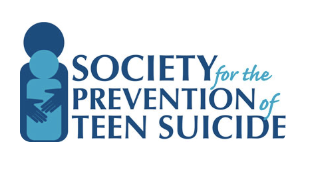Mind Your Mental Health is an educational initiative designed to raise awareness about mental health and mental illness.
November—Family Caregivers Month
This observance celebrates the 43 million Americans who are unpaid caregivers to family and friends. Learn more.
- Take care of your physical and emotional health. Doing so will help provide you with needed energy to care for your child with special needs. Download PDF
- Evaluate treatment options. If your loved one isn’t responding well to treatment, ask your doctor about other options. New treatments are always available, whether it’s a different dose, a new medication or a new procedure. Download PDF
- Know the physical and mental health effects of family caregiving. For many people, the new responsibility of caring for a loved one involves learning how to care for your loved one’s mental, physical and emotional needs while juggling the additional responsibilities it brings to your life. Download PDF
- Combat the solo struggle. Utilize replacement caregivers—either in-home or at a center. Ask family members to help with shopping, housecleaning and errands. Download PDF
Check back in on December 1, 2020 for next month’s content.
Stamp Out Stigma—Know the Facts
Stamp Out Stigma is taking the opportunity this month to discuss the importance of caregivers. This month, learn how you can be an effective caregiver while also taking care of yourself. Here are some important facts:
- Approximately 5 million caregivers have provided unpaid care to an adult or child in the last 12 months.
- Approximately 8 million caregivers provide care to adults (aged 18+) with a disability or illness or 16.6% of Americans. About 7 million adult family caregivers care for someone who has Alzheimer’s disease or other dementia.
- More than 75% of all family caregivers are women. And for many, caregiving is in addition to working full time and raising children of their own.
Mental health
includes our emotional, psychological and social well-being. It affects how we think, feel and act. It also helps determine how we handle stress, relate to others and make choices.
Mental illness
is common and treatable. About one in five in the U.S. experience mental illness. Sadly, because of the stigma with mental illness, many people do not get the treatment they need.
Mental health topics
Alcohol abuse is a pattern of drinking too much alcohol too often. It interferes with your daily life, can harm your relationships and can cause you to be unable to function at work and in other areas of your life. Learn how to recognize the signs of alcohol abuse and how to get help.
Everyone feels nervous or anxious at one time or another. But when frequent, powerful feelings of fear or dread cause people to feel they have lost control over their lives, they may have an anxiety disorder. Learn more about the signs and symptoms and how you can help yourself if you struggle with anxiety.
There is no better time than now to talk about reducing stigma surrounding mental health. Stigma creates an environment of shame, fear and silence that prevents many people from seeking help and treatment. Learn more about mental health awareness and how to change the perception of mental illness.
Depression is a serious illness that drains your energy, hope and drive, making it difficult to take the steps that will help you to feel better. While overcoming depression isn’t quick or easy, it’s possible. Learn more about how to recognize the signs of depression, and what you can do to receive the treatment you deserve.
Drug addiction is a complex disease, characterized by drug seeking and use that is compulsive, or difficult to control, despite harmful consequences. Quitting usually takes more than good intentions or a strong will. Learn more about how to recognize the signs of drug addiction, and what you can do about it.
The holiday season is meant to be a relaxing time spent with family and friends being thankful for another year. However, the whirlwind parties, rich eating, gift-giving, and time spent with some challenging people in your life often leads to increased stress and anxiety. Learn practical strategies to manage holiday stress and find peace and joy.
Resilience is the ability to recover from hardship and difficulties, and even to cope with life’s inevitable stresses. People who are resilient cope with stress in a positive way and tend to live longer, have lower rates of depression and are more satisfied with their lives. Learn how to increase resilience abilities and maintain emotional balance.
Stress affects everyone, and can build up in all sorts of ways. Feeling stressed can be beneficial at times, producing a boost that provides the drive and energy to help you get through situations like exams or work deadlines. However, an extreme amount of stress can have negative health consequences and take a severe emotional toll. Learn how to recognize when you or someone you care about is feeling too stressed out and how to manage it.
We can all help prevent suicide. A suicidal person may not ask for help, but that doesn’t mean that help isn’t wanted. Suicide prevention starts with recognizing the warning signs and taking them seriously. Learn more about how to talk about suicidal thoughts and feelings and how you can support someone who feels suicidal.
When a friend, family member or coworker has a mental health condition, your support can make a big difference in their recovery process. However, it may be hard to know how to approach the subject. Learn how to support someone with mental illness through their recovery, while still taking good care of your own mental health.
To be able to care for the people you love, you must first take care of yourself. Taking care of yourself is a valid goal on its own, and it helps you support the people you love. Self-care techniques and general lifestyle changes can help manage the symptoms of many mental health problems. Learn more about how to find help for yourself and stay aware of your mental health.
If you are in a crisis or considering suicide, or if you or someone you know is currently in danger, please call 911 immediately.



